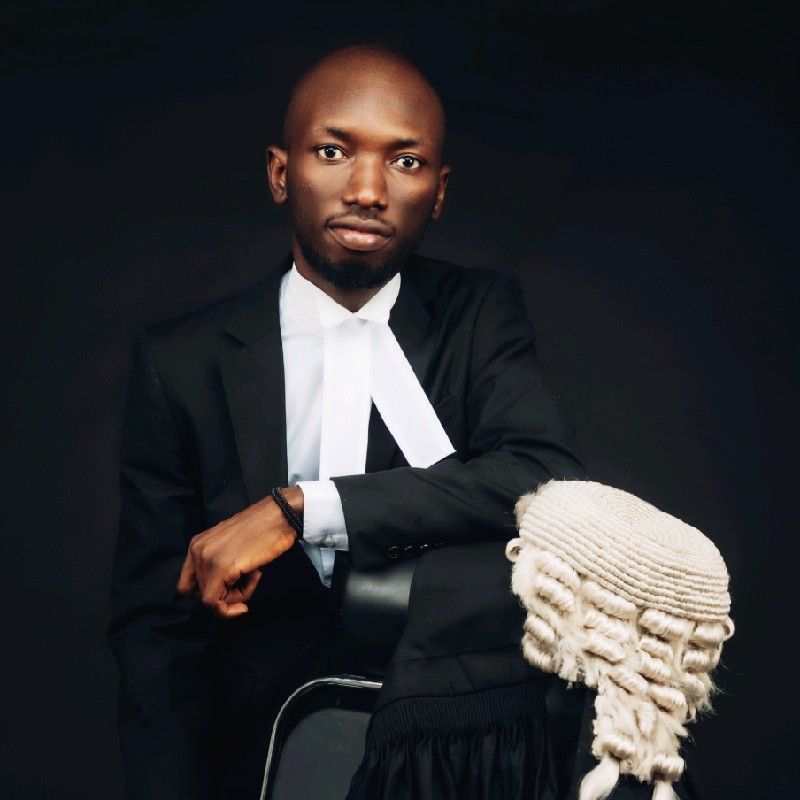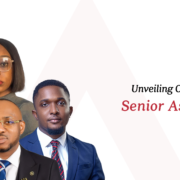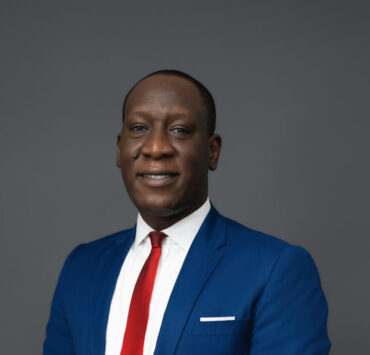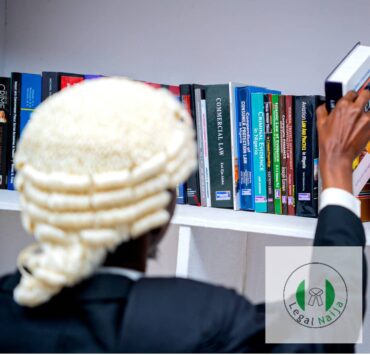Impacting the Beat: AI and Future of the Music Industry by Daniel Unoke

Lawyard is a legal media and services platform that provides…
Artificial Intelligence (AI) has been a popular subject of discussion since the start of the year. The emergence of AI tools such as ChatGPT and Midjourney has brought attention to the potential of this cutting-edge technology. The ability of AI to disrupt human life as we know it has left observers feeling a mixture of amazement, wonder, and apprehension. AI technology is currently being utilized not only in new frontiers but also as an additional layer to existing technologies. For instance, Google recently announced at its Annual Developers Conference I/O on May 10, 2023, that it is incorporating AI into its Gmail, Docs, and Search Products and Services[1]. Similarly, Snapchat introduced “My AI” to its platform which elicited mixed reviews.[2]. The music industry is not exempt from these changes, and there are reports about how AI is being deployed in the music industry.
This article attempts to predict the future of the music industry with the integration of AI.
THE STORY SO FAR
AI has been utilized in numerous music projects this year with varying degrees of success and public reception. One of the notable experiments has been attributed to Roberto Nickson, who recently posted a video on Twitter showcasing the power of AI in music production.[3] In the video, Nickson recorded a verse and used a trained AI model of Kanye West to replace his vocals. The results were deemed remarkable by many, including Nickson himself who claimed that the music industry had been forever changed.[4]
Nickson followed up his initial post with additional videos showcasing AI Kanye singing songs originally recorded by Kid Cudi[5] and Justin Bieber, specifically “Day N Nite” and “Love Yourself,” respectively. Spectators and fans alike have been in awe of this development, recognizing the potential that AI has in transforming the music industry.
AI has also been deployed in new frontiers of music production, as seen in the 2023 AI remake of a Paul McCartney song titled “New”. The song titled “New AI” utilized a younger version of McCartney’s voice and even included John Lennon singing a verse in the song.[6] This represents a groundbreaking development in music production, as it demonstrates the potential for AI to recreate and reimagine music from the past in new and exciting ways.
Ghostwriter977, a TikTok user, recently stirred up controversy by uploading a song entitled “Heart on my Sleeve” on major Digital Service Providers (DSPs). According to Ghostwriter, they claim to have written and produced the entire song, utilizing AI tools to modify the vocals to emulate those of Drake and The Weeknd. The song rapidly gained immense popularity, accumulating millions of streams across various platforms within a matter of weeks[7]. However, it is worth noting that its popularity was due more to its novelty, than its quality. Subsequently, Universal Music Group (UMG) issued a copyright infringement claim, leading to DSPs removing the song, while YouTube blocked the original upload.[8]
These developments have attracted mixed reactions. While many fans of artistes are typically thrilled to experience their favorite artistes featuring in some of their beloved songs, thereby enabling them to sing along or enjoy mashups, there is also an air of uncertainty around how AI will shape the music industry[9].
PREDICTIONS
The music industry experienced a similar level of upheaval in the late 1990s, triggered by the advent of disruptive technologies such as auto-tuning and Pro-tools and the emergence of Napster. This resulted in a decline in sales of recorded music, causing significant losses for record labels and leaving them uncertain about the appropriate course of action to take. However, the introduction of streaming platforms brought about positive changes. Record labels and their affiliated artistes were able to issue privacy claims and explore more cost-effective ways of distributing their music, which helped to alleviate the impact of declining record sales.
One of the most significant ways in which AI could impact the music industry is by reimagining and redefining the concept of collaboration. A notable instance of this occurred in 2012 when audiences were captivated by the “resurrection” of the late rapper Tupac Shakur, who performed posthumously at the Coachella Valley Music and Arts Festival[10]. As AI continues to advance, we can anticipate a disruptive influence wherein living celebrities may have the ability to perform live and in real time on stage alongside their deceased counterparts. Envisioning scenarios such as a “Resurgence Tour” by the Temptations or collaboration between Michael Jackson and Prince becomes feasible. These performances would extend beyond the mere release of audio tracks and could encompass concerts and tours featuring deceased artistes with the added value of real time interactions with fans.
An additional perspective worth considering is the intriguing notion that AI plug-ins can serve as a valuable tool for aspiring musicians, facilitating their learning process by enabling them to study the styles and techniques of their favorite artists. It can be likened to having a virtual sparring partner or engaging in a virtual mentorship, wherein the existing artist becomes a source of inspiration and guidance, acting as creative training wheels for the learner[11].
Furthermore, another potential source of revenue for artistes has emerged, as many are now advocating for royalty payments for any use of their voices in music pieces by individuals or entities other than themselves. Grimes, a lo-fi R&B artist, has already taken proactive measures in this regard, reportedly consenting to the use of her voice on the condition that she receives 50% of the revenue generated.[12]
As time progresses, it is inevitable that AI tools will become increasingly advanced, leading to the creation of more mashups and songs that imitate the style of artistes both living and deceased. This may result in an increase in copyright infringement claims, potentially pushing the boundaries of the current Intellectual Property regime.
One recent example is the dispute between UMG and Ghostwriter977. The notice issued to DSPs by UMG has prompted polarized responses from various Intellectual Property and Copyright experts. Many have criticized the claim and raised questions such as: Who owns the sound of an artist’s voice – the artist themselves or the record label? Copyright law protects original ideas that have been permanently recorded. What is the legal position on music that has never been released before but uses the voice and style of an artiste? And how would it affect Image Rights?[13]
These questions highlight the complexities of copyright law in the context of AI-generated content. As technology continues to evolve, it is likely that we will see further challenges to existing legal frameworks.
It is anticipated that the music industry will experience another disruption in the form of a competition between human artists and their AI counterparts. This competition is expected to generate an additional revenue stream for record labels and the artistes under their roster as rivalry and competition are significant aspects of the music industry. Rather than debating which artist is superior, such as Eminem or Jay Z, discussions will shift towards comparing the abilities of human artists and their AI versions. For instance, debates may focus on questions such as “Which is superior: Eminem or Eminem AI?” or “Whose vocals or verse are better in song X: Fireboy or Fireboy AI?”
The relationship between the modern music industry and intellectual property (IP) is paradoxical. While the industry heavily relies on IP, the interaction between the two remains complex, unstable, and contradictory, particularly when it comes to AI-generated voices. Traditionally, artists have been able to copyright their lyrics and music. However, the existing copyright framework lacks provisions for protecting voices. The regulations governing the use of AI are still in their nascent stage, making it challenging to determine ownership rights.
As a result of this recent development, a potential trend may arise where artists signing deals with record labels might have to enter agreements granting the labels rights over their voices for any music-related matters[14]. Nevertheless, at present, artists generally retain ownership of their voices, enabling them to pursue legal action against individuals who utilize their voices without authorization, particularly if such usage results in profit. The existing framework concerning the “right to publicity” and “right to likeness” safeguards the use of a person’s name, face, and voice against unauthorized commercial exploitation.
There is also the possibility that fans may develop a preference for AI-generated versions of musical artists. This trend could eventually lead record labels to replace natural artists with AI-generated ones, resulting in AI-generated artists becoming mainstream in the near future which may lead to inquires that will disrupt and influence the foundational tenets of IP. Those inquiries include:
- Should legal personality be attributed to an AI artist, and if so, who shall be deemed the rightful owner of the rights associated with the creation of said AI artist? This question raises concerns regarding the recognition and legal status of AI entities within the realm of artistic creation.
- When music is composed, written, produced, and recorded by an AI artist, who should be entitled to the rewards and rights derived from such compositions? This query delves into the allocation of benefits resulting from musical works generated solely by AI entities.
Finally, these shifts could disrupt the industry even further, as DSPs may opt to create their own AI-generated artists, potentially rendering record labels and their music obsolete. This phenomenon could be likened to a domino effect, with one change leading to another.
CONCLUSION
It is widely acknowledged that predicting the precise ways in which AI will disrupt the music industry and the innovative methods in which the technology will be utilized in the near future is a challenging task. However, it is unanimously agreed that the tools of AI are here to stay and will inevitably result in substantial disruptions. This article can be perceived as a well-informed estimation of potential developments.
[1] Verge, “Google I/O 2023 is a wrap — here’s a list of everything announced Christine Hall https://techcrunch.com/2023/05/10/heres-everything-google-has-announced-at-i-o-so-far/ “accessed on 12th May 2023.
[2] Tom Gerken, “My AI: Snapchat chatbot introduced to mixed reviews”, https://www.bbc.com/news/technology-65388258” accessed 10th May 2023
[3] https://twitter.com/rpnickson/status/1639813074176679938?t=7-gyLWkqHhG-ELKlpOEShg&s=08 accessed 20th April 2023
[4] Ibid
[5] https://twitter.com/ElunaAI/status/1639660583275380737?t=17-9u-pQcRq6byXmrRkkNQ&s=08 accessed 21st April 2023.
[6] Kian Rains, Paul McCartney: AI recreates iconic musician’s song to resemble Beatles track leaving fans in tears https://www.liverpoolworld.uk/news/people/paul-mccartney-ai-song-beatles-4127256 accessed 10th May 2023.
[7] Verve, “What’s really going on with ‘Ghostwriter’ and the AI Drake song? By Mia Sato and Richard Lawler” updated Apr 19, 2023, 8:08 PM https://www.theverge.com/2023/4/18/23688141/ai-drake-song-ghostwriter-copyright-umg-the-weeknd accessed 20th April 2023.
[8] ibid
[9] AfroTech, “Timbaland Met With Mixed Reactions Following AI-Generated Song Collaboration with the Late Notorious B.I.G” May 5, 2023, https://afrotech.com/timbaland-met-with-mixed-ractions-after-ai-generated-song accessed 14th May 2023.
[10] https://youtu.be/TGbrFmPBV0Y
[11] Kulturtechniken, ”AI & IP: Who owns music made by a machine?” https://www.goehe.de/prj/k40/en/mus/machine-music.html access 12th May 2023.
[12] Althea Legaspi Grimes on AI Songs: ‘Feel Free to Use My Voice Without Penalty’
https://www.rollingstone.com/music/music-news/grimes-voice-ai-generated-songs-1234722289/amp/ accessed 1st may 2023.
[13] Chioma Ndu-apkunku, “Navigating the web of image rights in light of emerging tech. The ‘Heart on my Sleeve’ Saga.” May 11th 2023 https://www.ikoafrica.com/user/read/1RyUcTL5KWGt8s2sTYeq?recommendations=false Accessed 11th May 2023.
[14] Forbes, “Who owns Voice and Image AI Rights?” https://www.google.com/amp/s/www.forbes.com/sites/schuylermoore/2022/10/28/who-owns-voice-image-artificial-intelligence-rights-amp/ accessed 13th May 2023.
Lawyard is a legal media and services platform that provides enlightenment and access to legal services to members of the public (individuals and businesses) while also availing lawyers of needed information on new trends and resources in various areas of practice.















